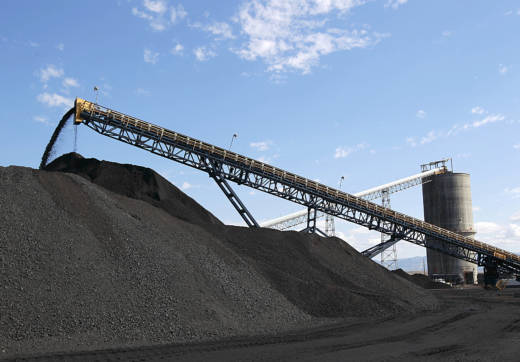U.S. District Court Judge Vince Chhabria wrote in a May 15 ruling the City Council lacked "substantial evidence" that planned coal shipments through the yet-to-be-built Oakland Bulk and Oversize Terminal "would pose a substantial health or safety danger."
In his ruling, Chhabria said Oakland had violated its contract with the facility's developer, and he blasted the studies the City Council relied on in approving the ban as "riddled with inaccuracies, major evidentiary gaps, erroneous assumptions, and faulty analyses, to the point that no reliable conclusion about health or safety dangers could be drawn from it."
"Cities have the right to enact health and safety regulations, and these regulations can impact existing contracts," Schaaf said Wednesday. "They do need to be supported by strong scientific evidence, and this judge felt like we had not made a sufficient case. That is something that we believe was not a correct ruling under the existing law, and we also have the opportunity to continue to build that case."
Chhabria's ruling criticized a study from Bay Area-based Environmental Science Associates that was the main basis for the city's assessment of the new cargo terminal's impact. For example, he said the study didn't take into account promises from the developer to limit the spread of coal dust through measures like fitting coal cars with covers.
Schaaf disagreed that such techniques would end health and safety risks for residents.
"The court certainly evaluated not only the scientific evidence we put forth, but the promises of mitigations of those dangers put forth by the coal terminal operators," Schaaf said. "We believe that those mitigations are not going to be sufficient to eliminate the health and safety risks. That is where we differ in our interpretations, and we will continue to seek a more accurate application of the laws that give deference to a city’s ability to pass health and safety regulations."
The Fight Over Coal Shipments Through Oakland
Developer Phil Tagami's Oakland Bulk and Oversize Terminal concern won the right in 2012 to develop the Army Base property as a bulk cargo facility -- one that would handle uncontainerized materials like grain, timber, cement or minerals like coal. The project is separate from the Port of Oakland.
Tagami, a former member of Oakland's port and planning commissions also known for leading the Fox Oakland and Rotunda redevelopment projects downtown, initially offered assurances that coal would not be handled at the new facility.
But word leaked in 2015 that Tagami's Oakland Bulk and Oversized Terminal and the firm created to design, build and operate the facility, Terminal Logistics Solutions, were actively planning for coal shipments from Utah. (It later emerged that Bowie Resources Partners, an energy firm that mines coal in Utah that would be shipped through Oakland, owns Terminal Logistics Solutions.)
The coal plan touched off a widely publicized dispute between Tagami and Schaaf and prompted the City Council in 2016 to pass both an ordinance banning coal shipments and a resolution specifically prohibiting the fossil fuel from passing through the new bulk terminal.
Tagami sued, alleging breach of contract and saying the city's action violated the U.S. Constitution and federal law.
